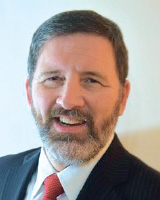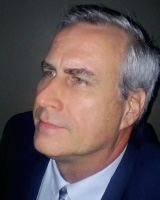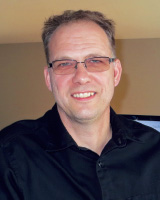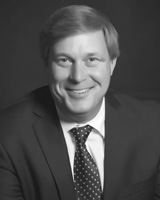Karen Boehme – National Fluid Power Association (NFPA)
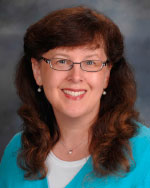 How did your career with the NFPA start?
How did your career with the NFPA start?
I started at NFPA in July 1984 and worked for about a year and a half writing for and editing the NFPA Reporter and other NFPA publications. Part of my job was translating French ISO documents into English for NFPA’s technical department; this was my first experience with international standards work. In December 1985, Jim Morgan, who was president of NFPA at the time, gave me the opportunity to work full time on international standards, and it turned out to be a great fit for my skill set because I have done this work for the last 28½ years.
What are some memorable moments of your career, and what did they teach you?
The moments I remember best relate to projects and more important, people. Back in the late 1980s and early 1990s, we worked on a suite of hydraulic connector standards that comprehensively covered these products. Other special projects included the fluid power vocabulary (ISO 5598), pneumatic flow rating (ISO 6358 series—working on those was like a mini-course in the physics of compressed air measurement), and the systems standards (ISO 4413 and 4414) twice—in the mid-1990s and mid-2000s. These were projects that attracted great teams of people. I have to say that it has been the people that I’ve worked with over the years—committee members, others who did the same job as I did in other countries, and NFPA, ISO, and ANSI staff—that has made my career so fulfilling. I learned how to deal with people from different cultures, how to build consensus, and how to deal with conflict productively. I was able to work closely with so many great leaders and learn what matters the most: passion for the work and the team, honesty, and focus on setting and achieving goals (although I did not always succeed in putting that learning into practice—but I’ve tried).
In your experience, how has the fluid power industry grown and changed?
That’s an interesting question, because some of the fluid power industry’s challenges haven’t changed in 30 years. But the good news is that there is something about the technology and the business that continues to attract really good, creative people. Over the years, I’ve seen the industry grow in confidence and outreach, especially to younger people. I think the industry does a better job of explaining the unique benefits of fluid power and the exciting opportunities a career in fluid power can offer. In standards development, industry players have come together to provide the technical infrastructure that allows the technology to be used safely and more easily. Some of this work is in response to regulation, particularly in the European market, but much of it relates to the challenges inherent in fluid power technology: leakage, noise, system design. Standardization really does cover most of the state-of-the-art and best practices—the information is there for everyone to use.
What do you think the future has in store for fluid power?
The future of fluid power will be determined by the industry’s people and their creativity in meeting customer needs, especially in improving the energy efficiency and reliability, and reducing the environmental impact, of fluid power components and systems. Research and standardization work being done now will improve the technology and open up new fields of application.
Why do you feel ISO standards are important, and how have they influenced the fluid power industry so far?
Standards are the technical facilitators of trade and technology transfer; ISO standards perform these roles on a global scale. ISO standards make it possible
- for OEMs that manufacture and sell equipment all over the world to source standardized components locally;
- for component manufacturers, large and small, to sell their products worldwide;
- for users and manufacturers of fluid power components to benefit from economies of scale that only a global standard can provide;
- for new users of fluid power to benefit from the codification of best practices.
How will ISO standards play a role in the future of fluid power?
As I mentioned before, I expect that ISO standards will continue to be a way to share best practices with new users of fluid power, both in new applications and in developing countries.
Why would you encourage fluid power professionals to become involved with the NFPA?
Even though NFPA membership is at the corporate level, I think the major benefit for the people who are employed by our member companies is having the opportunity to network with their industry peers and to work together on projects that help the entire industry. I have seen so many people use NFPA committee work to develop their leadership and communication skills.
What is the next step for you personally and professionally?
There are some big changes ahead. Personally, I am marrying a wonderful man (Robert Mackey of Main Manufacturing Products) and moving from Milwaukee, Wis., to the Flint, Mich., area in June 2014. Professionally, I plan to start a freelance writing and standards service/consulting business after I leave NFPA.
NFPA, the fluid power industry, and international standards work have been such blessings in my life. I am grateful to have had the chance to work with so many talented co-workers and committee people from around the world and to have become great friends with many of them. I am going to miss the work but most of all the people. Thank you for this opportunity to share some thoughts with the readers of Fluid Power Journal. I wish them all the best!


